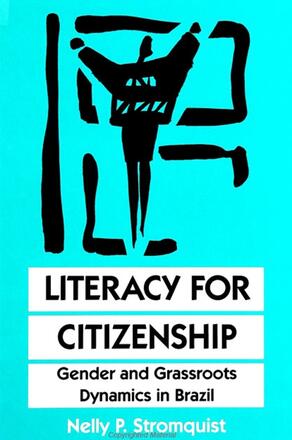
Literacy for Citizenship
Gender and Grassroots Dynamics in Brazil
Alternative formats available from:
Describes the experiences of a group of adult Brazilian women in a literacy program with explicit emancipatory objectives.
Description
This book explores the involvement of nineteen women in an emancipatory literacy program conducted under the administration of Paulo Freire in Sao Paulo, Brazil. The study presents the classroom experiences of these women and the psychological, cognitive, and behavioral changes they undergo over a three-year period. Their low limited acquisition of literacy and their limited reading and writing practices are explored in the context of their circumscribed environment of poverty, living in families and societies that place definite boundaries and expectations regarding the everyday tasks they must perform. The analysis of the women's individual experiences is linked to a political and structural inquiry into the grassroots groups and the political party implementing the literacy program. In this way, contradictions, ambiguities, and antagonisms within and among social forces regarding literacy for social change are made transparent. Literacy acquisition is shown to be a process fraught with multiple exogenous demands that distance these women from the constant exposure to print required for literacy competence.
Nelly P. Stromquist is Professor of International Development Education in the School of Education at the University of Southern California.
Reviews
"Nelly Stromquist's case study of the MOVA (Movimento de Alfabetizacao de Jovens e Adultos) literacy program in Sao Paulo, Brazil between 1989 and 1993, is a significant contribution to the literature on education and development. It provides insights into the limitations of many current theories concerning the potential of literacy and adult basic education programs, even those with declared 'emancipatory' goals, to effect personal and social change. At the same time, the detailed information obtained by her use of feminist and sociocultural perspectives, and her attention to the individual voices of the participants in this ambitious literacy program, enhances our understanding of what factors shape the acquisition, uses, and outcomes of literacy skills. While the focus is on how a progressive literacy program may or may not benefit women, many of the findings, I believe, have universal relevance. " -- from the Foreword by Dr. Robert Arnove